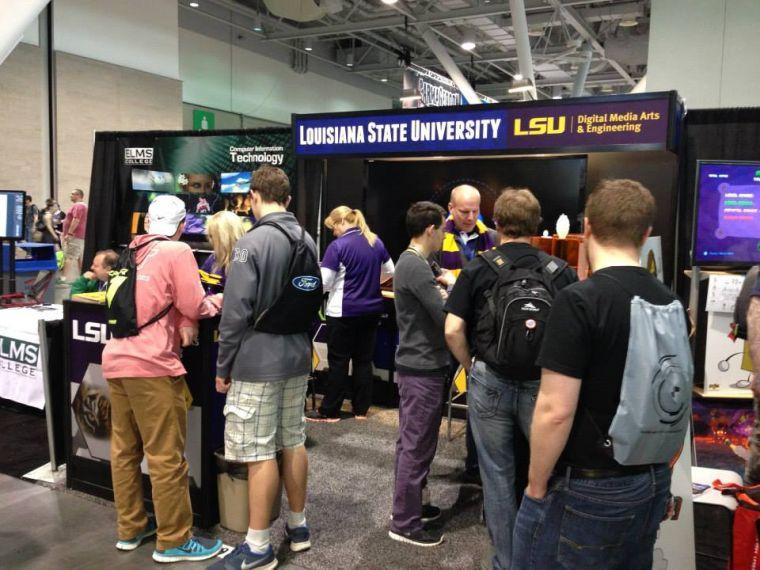While many students were at the beach, University Center for Computation and Technology faculty were at the Penny Arcade Expo in Boston among cosplayers, gamers, fans and hopeful future developers.
Also called PAX East, this gaming festival draws more than 80,000 people every year and features big names like “League of Legends” developer Riot Games.
Several CCT faculty members, including Marc Aubanel, director of Digital Media Arts and Engineering in the CCT, and Robert Kooima, attended the event to raise awareness about the University’s new Digital Media Arts and Engineering professional master’s degree program. The DMAE program was proposed last fall and will not officially be available until next academic year.
“The festival is meant for the game-playing public,” Aubanel said. “All kinds of people attend — kids who are 8 or 9 to people in their 50s.”
According to the PAX East website, the festival features an exhibit hall, several panels, concerts and different lounges for PC, handheld and console gaming.
Aubanel said festival tickets sold out four or five hours after they were put on sale.
University DMAE had a booth in the festival’s exhibit hall, where they demonstrated 3-D printing and handed out materials about the University.
Kooima said in an email the DMAE program is meant to prepare students for careers in the gaming and special effects industry.
“There are a wide variety of possible positions out there,” Aubanel said.
The program will focus on what Aubanel calls “The Four Cs” — computation, creativity, collaboration and commerce — through 12 classes and 39 credit hours.
Digital media production, interactive design and varying levels of advanced programming are among the required courses.
“The program is more vocational than traditional,” Kooima said in an email. “Our traditional graduate programs continue to provide broad and deep knowledge and analytical understanding, while the DMAE program provides focused skills for specific roles in this growing industry.”
The video game industry is larger than the film industry, Aubanel said, and reaches a wider demographic.
Aubanel said the program aims to help digital media continue to develop a positive presence in Louisiana, which the state government also takes an active role in.
According to the Louisiana Economic Development website, the Digital Interactive Media and Software Development Incentive provides a 35 percent tax credit payroll of in-state labor and a 25 percent tax credit for qualified production expenses.
New master’s program promoted at festival
By Renee Barrow
April 22, 2014






